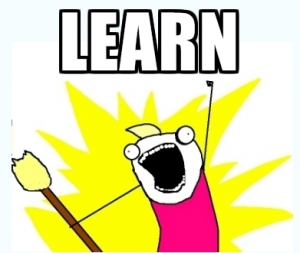 Who could have anticipated that corporate learning would see a day where discussing mobile platforms, “pull” or on-demand learning models, and flipped classrooms would be the norm? In the recently released Global Human Capital Trends 2014 report, Deloitte dissected several trends poised to impact HR this year, including the upcoming revolution in corporate learning.
Who could have anticipated that corporate learning would see a day where discussing mobile platforms, “pull” or on-demand learning models, and flipped classrooms would be the norm? In the recently released Global Human Capital Trends 2014 report, Deloitte dissected several trends poised to impact HR this year, including the upcoming revolution in corporate learning.
Today, Deloitte estimates that more than 24 million people have tried online education, and the majority of Millennials entering the workplace even expect learning to be delivered online. Traditional employee training represents a $130 billion global market, but more than 70% of executives say their organizations are “weak” when it comes to their preparation to use advanced media in learning. Yikes.
To address the changing concerns of today’s changing workforce, most companies are planning to or already replacing traditional training environments with a mix of online, mobile, and other unique approaches that allow employees to incorporate training into their everyday work through “pull” learning models.
You know about Google, right? Of course you do. Well, “pull” learning models allow employees to treat training like searching the web for answers to their everyday work concerns and questions, instead of receiving training in a scheduled class environment where they are less likely to retain information they won’t use until sometime in the future.
In the recent report from Deloitte, they call attention to something LinkedIn founder Reid Hoffman calls the new “employee-employer contract,” in which companies no longer provide lifetime career paths, but “tours of duty” — assignments that give employees new skills, education, and a set of experiences. Skills are acquired rapidly in this environment and, according to Hoffman, employees become not only more capable, but more engaged and loyal to the organization.
Deloitte even went so far as to say, “Our research shows that creating this type of learning culture, where employees willingly share skills and knowledge, is now one of the most important factors in business success.”
So corporate learning is changing with the expectations of employees — more and more companies are providing training in mobile-friendly environments, with “pull” delivery, peer-to-peer development, and with a focus on shorter-term educational assignments. It’s a revolution in training, but the good news is — HR respondents to the recent Deloitte survey have claimed a high level of readiness to handle the changing expectations for learning and development, revealing a lower capabilities gap than in other categories.
It sounds like HR is ready for the corporate learning revolution, are you?




